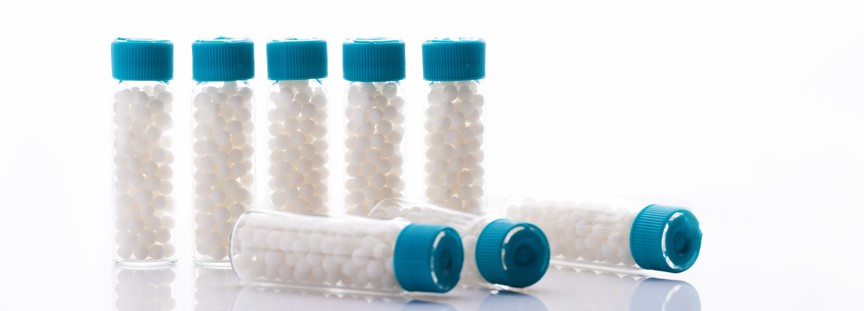
PCOD (Polycystic Ovary Syndrome) is a hormonal imbalance that causes irregular menstrual cycles, and the formation of small cysts on the ovaries characterize it. While conventional treatments such as medication, lifestyle changes, and hormonal therapies are often recommended for managing PCOD, some individuals may seek PCOD homeopathic treatment as an alternative approach. Here are several reasons why someone might consider homeopathic treatment for addressing PCOD:
JOIN US FOR MORE ON:
or
or Follow us on WhatsApp Channel
- Individualized Approach: Homeopathy is a holistic system of medicine that considers the individual’s unique symptoms, physical constitution, and emotional state. PCOD can manifest differently in each person, and homeopathy addresses the underlying causes specific to each individual rather than adopting a one-size-fits-all approach. Search for needed PCOD homeopathic treatment.
- Symptom Management: PCOD is associated with various symptoms such as acne, weight gain, hair loss, hirsutism (excessive hair growth), and mood swings. Homeopathic remedies are selected based on the individual’s specific symptoms, aiming to alleviate them and improve overall well-being.
- No Side Effects: One of the advantages of homeopathic treatment is its minimal risk of side effects. Homeopathic remedies are made from natural substances, typically in highly diluted forms. They are gentle, non-toxic, and generally well-tolerated, making them suitable for long-term use.
- Emotional and Mental Well-being: PCOD can impact a woman’s emotional and mental well-being, leading to mood swings, anxiety, and depression. Homoeopathy considers the emotional and mental state of the individual, and remedies are chosen to address these aspects as well. By restoring emotional balance, homeopathic treatment can support overall healing and well-being.
- Fertility Support: Many women with PCOD experience difficulties with fertility due to irregular ovulation. Homeopathic treatment aims to regulate ovulation and improve fertility naturally. By addressing the underlying hormonal imbalances, homeopathy can enhance the chances of conception in women with PCOD.
It is important to note that while homeopathy may benefit some individuals with PCOD, it is not a replacement for conventional medical care. Homeopathic treatment should be pursued under the guidance of a qualified homeopath and in conjunction with regular monitoring by a healthcare professional.
- Long-term Management: PCOD is a chronic condition that requires long-term management. Homoeopathy focuses on addressing the underlying causes of PCOD rather than just managing symptoms. Homeopathic treatment aims to provide sustainable and lasting relief from PCOD symptoms by targeting root imbalances.
- Personalized Lifestyle Guidance: Homeopathy often includes lifestyle recommendations in the treatment plan. This may involve dietary modifications, exercise guidance, stress management techniques, and other lifestyle adjustments. By incorporating these personalized recommendations, homeopathy aims to support overall well-being and help individuals make positive lifestyle changes that can contribute to managing PCOD effectively.
- Integration with Conventional Treatment: Homeopathic treatment can be used alongside conventional therapies for PCOD. It is considered a complementary approach that can work synergistically with conventional medicines. By integrating homeopathy with traditional treatment, individuals may experience enhanced results and a more comprehensive approach to managing PCOD.
- Patient-centered Approach: Homeopathy takes a patient-centered approach, allowing individuals to participate actively in their healing process. The homeopath engages in detailed discussions with the patient, gathering information about their symptoms, medical history, and overall well-being. This patient-centered approach empowers individuals to take an active role in their healthcare and fosters a deeper understanding of their condition.
- Whole-body Health: Homeopathy views health as balance and harmony in the body, mind, and spirit. It considers the interconnection between different bodily systems and aims to restore overall well-being. By addressing the underlying imbalances associated with PCOD, homeopathy promotes whole-body health and supports the body’s natural healing processes.
- Holistic Approach: Homeopathy treats the individual as a whole rather than focusing solely on the symptoms or the specific condition. This holistic approach considers all aspects of an individual’s health, including physical, emotional, and mental well-being. Homoeopathy aims to promote overall health and vitality by addressing the person as a whole.
- Individualized Support: Homeopathic treatment involves regular follow-up visits with the homeopath. These visits provide an opportunity to assess progress, adjust the treatment plan if necessary, and provide ongoing support. The homeopath can monitor the individual’s response to the treatment and make necessary modifications to optimize outcomes.
- Natural and Sustainable Approach: Homeopathy follows the principle of “like cures like,” using highly diluted substances to stimulate the body’s innate healing abilities. It is a natural and sustainable approach to managing PCOD, promoting self-regulation and restoring balance in the body.
It’s important to remember that every individual is unique, and the effectiveness of PCOD homeopathic treatment can vary. Some individuals may experience significant improvements in their symptoms, while others may find more modest results. Consulting with a qualified homeopath and maintaining open communication with your healthcare team is crucial for a well-rounded approach to managing PCOD.
Furthermore, the effectiveness of homeopathy in treating PCOD may vary from person to person. Some individuals may experience significant improvements in their symptoms, while others may find more modest results. Having realistic expectations and maintaining open communication with your healthcare team is essential.
In conclusion, homeopathic treatment for PCOD offers a holistic and individualized approach to managing the hormonal imbalances and symptoms associated with PCOD. By considering the unique needs of each individual, homeopathy aims to restore hormonal balance, regulate menstrual cycles, alleviate symptoms, support emotional well-being, and potentially improve fertility. However, consulting with a qualified homeopath and working with conventional medical care is important to ensure comprehensive management of PCOD.
Originally posted 2023-07-26 08:14:58.
